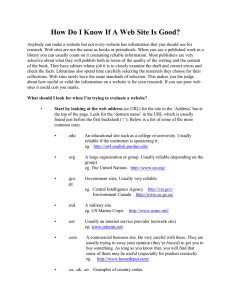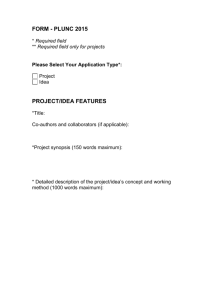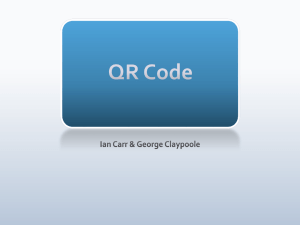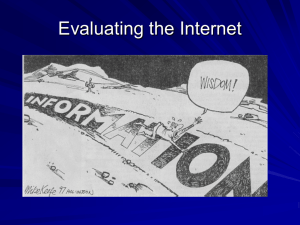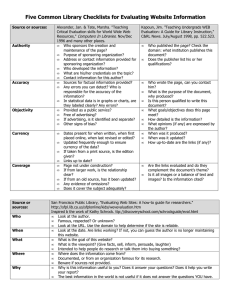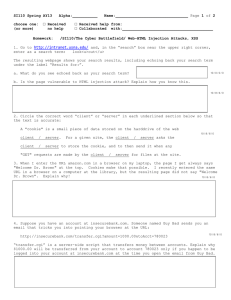EVALUATING WEB SITES
advertisement
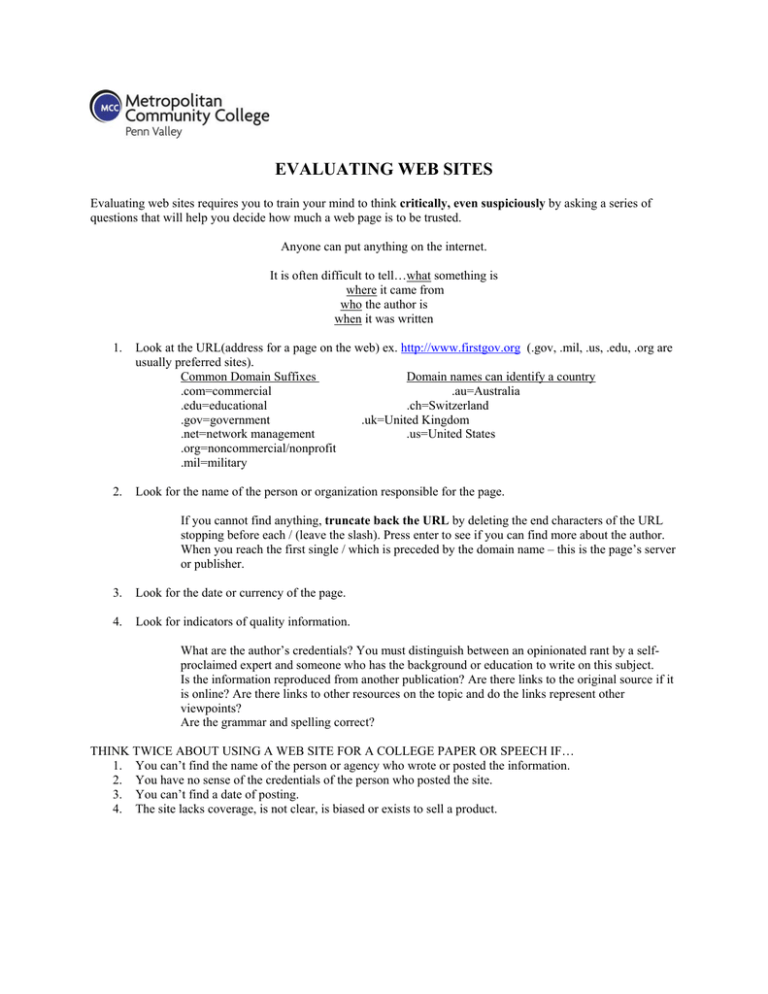
EVALUATING WEB SITES Evaluating web sites requires you to train your mind to think critically, even suspiciously by asking a series of questions that will help you decide how much a web page is to be trusted. Anyone can put anything on the internet. It is often difficult to tell…what something is where it came from who the author is when it was written 1. Look at the URL(address for a page on the web) ex. http://www.firstgov.org (.gov, .mil, .us, .edu, .org are usually preferred sites). Common Domain Suffixes Domain names can identify a country .com=commercial .au=Australia .edu=educational .ch=Switzerland .gov=government .uk=United Kingdom .net=network management .us=United States .org=noncommercial/nonprofit .mil=military 2. Look for the name of the person or organization responsible for the page. If you cannot find anything, truncate back the URL by deleting the end characters of the URL stopping before each / (leave the slash). Press enter to see if you can find more about the author. When you reach the first single / which is preceded by the domain name – this is the page’s server or publisher. 3. Look for the date or currency of the page. 4. Look for indicators of quality information. What are the author’s credentials? You must distinguish between an opinionated rant by a selfproclaimed expert and someone who has the background or education to write on this subject. Is the information reproduced from another publication? Are there links to the original source if it is online? Are there links to other resources on the topic and do the links represent other viewpoints? Are the grammar and spelling correct? THINK TWICE ABOUT USING A WEB SITE FOR A COLLEGE PAPER OR SPEECH IF… 1. You can’t find the name of the person or agency who wrote or posted the information. 2. You have no sense of the credentials of the person who posted the site. 3. You can’t find a date of posting. 4. The site lacks coverage, is not clear, is biased or exists to sell a product.
